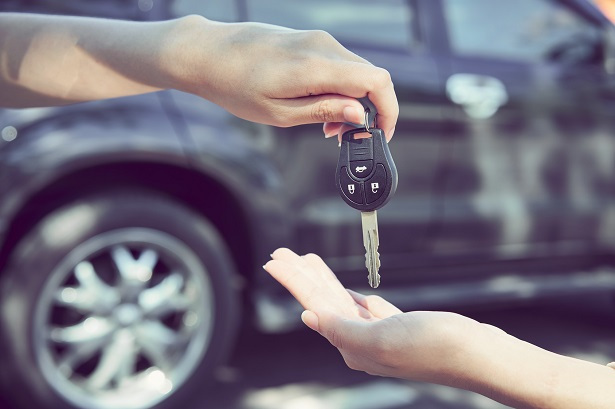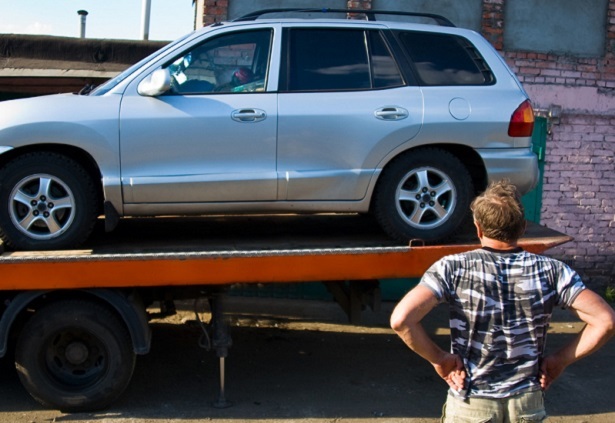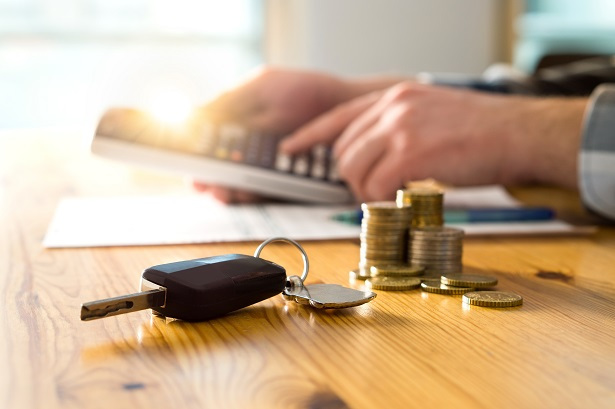When you can't afford your monthly car payments, you risk defaulting on your loan which leads to vehicle repossession and serious damage to your credit report. If you find yourself in this situation, you have some choices to make. You can refinance your auto loan, contact the lender to discuss your options, surrender your vehicle voluntarily or miss payments without giving notice which will ultimately lead to repossession (not recommended). If getting more favorable loan payments through refinancing and speaking with your lender gets you nowhere, it's time to consider surrendering your vehicle. Find out how voluntary surrender differs from repossession and how it can help you recover faster from a bad car loan.
What is a Voluntary Surrender?

If a job loss, unexpected medical bills or other changes to your finances make it impossible for you to pay your car loan, you can choose to voluntarily surrender your vehicle. A voluntary surrender means you acknowledge that you are defaulting on your loan and willingly return the car to the lender. This is the preferred way to handle the situation instead of hiding out, skipping payments and waving goodbye to your car as it is forcefully taken by repossession.
To set up the vehicle surrender, you'll contact your lender and let them know you're not able to make payments. They will arrange a time, place and point of contact who will handle the transaction when you drop off the vehicle. From here, the lender will resell the vehicle at auction and will notify you when the sale is complete. They will also inform you of the amount you owe if they weren't able to recoup the full value of the loan.
Voluntary Surrender vs. Repossession

Although there are only minor benefits to surrendering the vehicle as opposed to having it repossessed, we recommend taking the more proactive approach. After you turn in the vehicle, the default will be marked on your credit report as a "voluntary surrender" instead of a "repossession".
Effects on Your Credit
Both voluntary surrender and a forced repossession are classified as loan defaults on your credit report which remain on your report for 7 years. Although both actions will hurt your credit, the fact that you're taking responsibility for your car loan and taking action to correct it can preserve your relationship with the lender and make it easier to get an auto loan in the future. When your credit report is reviewed manually, the voluntary surrender may look more favorable than the scarlet letter of a repossession. While the loan default will remain on your credit report for 7 years, you'll see your credit start to improve after a few years if you stay on track with paying all your other bills on time.
Repossession Fees
A voluntary surrender doesn't mean you're off the hook for paying your loan as soon as you hand over the keys. You'll still be responsible for the deficiency balance which is the loan amount that the lender could not recoup when they sell the vehicle at auction. Where you may be able to save money, however, is on the extra repossession fees. When a vehicle gets repossessed, the lender will usually go after the borrower for towing and storage fees. If you surrender the car yourself, you can avoid these extra charges.
You've Surrendered Your Vehicle, Now What?

After parting ways with your car, you'll need to cover the fees you're responsible for such as the deficiency balance. Once that is taken care of, you'll be ready to come up with a game plan to remedy the hit to your credit and start saving for your replacement car.
Work to Improve Your Credit
Because your credit score took a blow from the loan default, the hard truth is that it's unlikely you'll be approved for a car loan at a reasonable interest rate since you'll be classified as a high-risk borrower. Rushing into a new loan to replace your car can also land you in the same situation you just got yourself out of. Instead, focus on working towards improving your credit score by staying diligent about paying all bills on time, paying more than the minimum and reducing your credit utilization. Over time, your score will rebound and you'll be able to get approved for a car loan.
Look for An Affordable Used Car
Instead of trying to get another loan for a replacement car right away, you should look for an affordable used car that you can buy in cash. You'll likely have to go with a high-mileage or older car but you'll avoid the stress of monthly car payments and still have a way to get around. Simultaneously, you can continue to save up and improve your credit for a future car purchase.


